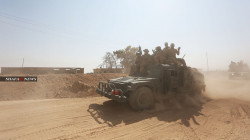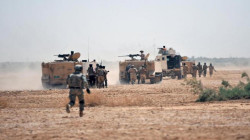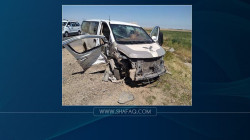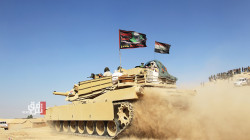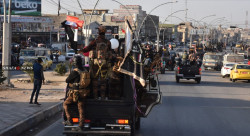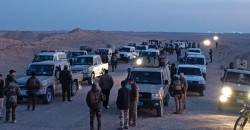‘Fallujah Land’: Iraq’s Anbar province rebuilds after Isis
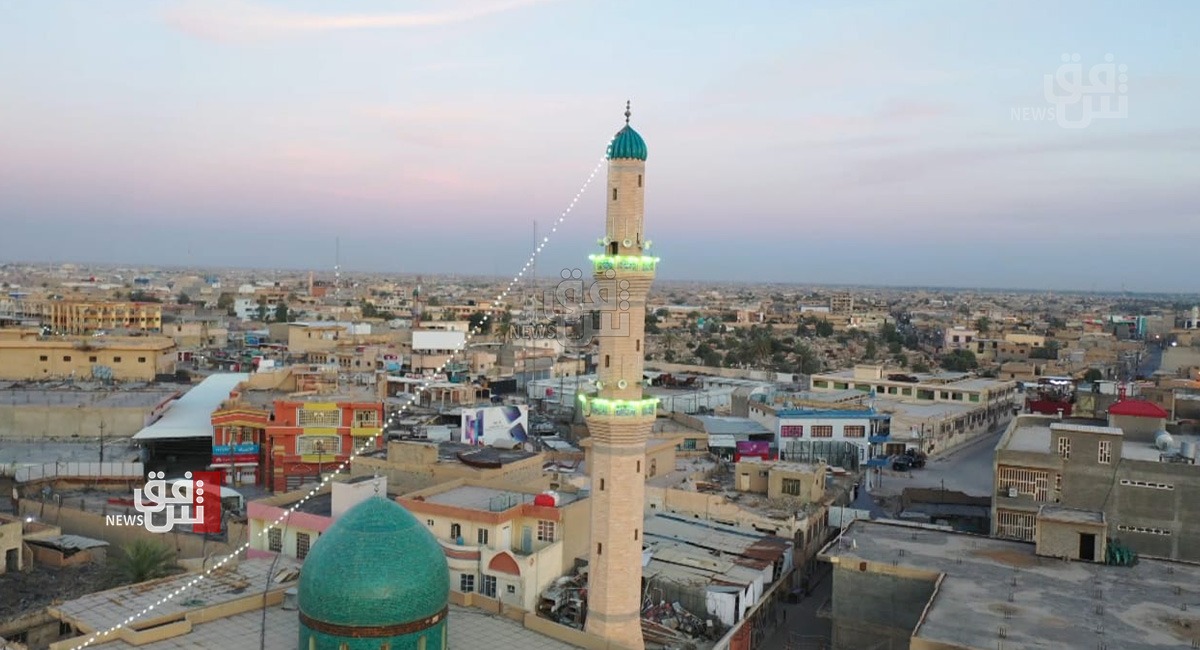
Shafaq News/ A boulevard by the river is illuminated with street lights, new roads and shopping malls being built: five years after the defeat of jihadi group Isis, there are signs of a fragile economic resurgence in the Iraqi city of Ramadi.
Infamous as a hotbed of Sunni resistance during the US-led occupation and later a stronghold for al-Qaeda and then Isis, a tentative security has returned to Anbar, Iraq’s largest province.
As a result, Ramadi and Fallujah, the province’s main cities, are buzzing with construction projects, bustling markets and family funfairs, including one called “Fallujah Land”.
“After our security situation improved, business has kept getting better and better,” said Bakr Mahmoud, 33, gluing a screen cover on to a customer’s mobile at his busy phone shop. “The best thing is we forgot about sectarian stuff.”
Located on the porous Syrian border, and sharing a frontier with Jordan and Saudi Arabia, restive Anbar has long been a danger zone.
A tribal region and Iraq’s biggest governorate by landmass, predominantly Sunni Anbar has been the scene of some of Iraq’s most notorious battles. Sunnis were marginalised after the fall of Saddam Hussein, which brought majority Shia to power, and Anbar became the centre of Sunni resistance to US occupation.
More than 10,000 American, British and Iraqi troops battled insurgents in Fallujah city in 2004. Sunni extremists al-Qaeda later over-ran Anbar, defeated by a tribal alliance in 2006. But Anbar then fell to Isis in 2014. An estimated 20,400 people in Anbar were killed between 2003 and 2017, according to the Iraq Body Count database, out of about 200,000 deaths in the whole country.
Five years after Isis were themselves forced from the cities by Iraqi forces, military chief Nassir al Ghannem says the extremists are at their weakest. “I proudly tell you that there were no major terrorist attacks [in Anbar] in the last two years,” Ghannem said from a military base in Iraq’s vast western desert. “Isis are at their weakest . . . not more than 75 in all Anbar desert.”
Improved security has finally allowed people in Anbar to rebuild their lives and homes. The Iraqi government and international agencies have poured money into better roads and new bridges. About 1.5m people displaced by fighting have returned. Anbar’s investment authority has issued hundreds of investment licences.
The man many credit with Anbar’s improved fortunes is 40-year-old Mohammad al-Halbousi, who was Anbar’s governor from 2017 until 2018, when he became parliamentary speaker — the most senior post assigned to a Sunni within Iraq’s executive branch under its sectarian power-sharing system. In a country and a province where anger at corruption and high youth unemployment is rife, Halbousi is seen as having been effective in pushing for reconstruction at the political level.
“Life now is better than before Isis,” said a mechanic in the young politician’s home town Garma. “There’s no comparison in my situation . . . security, and my work, is better than before.” The 43-year-old said he had voted for Halbousi in Iraq’s recent elections “because he worked”.
Yet not all have benefited from the development, and many are still paying the high cost of ousting the jihadis. After a chaotic 2016 military operation, the Shia militias that were mobilised to fight the jihadis still control parts of Anbar.
On a dusty street where some houses still lie in rubble, Sadiya Hamed, 59, lives with 14 grandchildren and four daughters-in-law. She lost all nine sons during Isis liberation operations in June 2016, when an unidentified armed group in military garb entered her neighbourhood of Saqlawiya.
Shia militiamen have long been suspected, but Hamed said there has been no official investigation. Nor did the authorities help her rebuild. “The government did nothing in this area,” Hamed said, adding she was still in debt from repairing her house, torched during her displacement. “They only repaired the main street and they neglected the internal streets.”
Many Anbaris resent what they see as the continued occupation by powerful Shia militia forces, and analysts say pro-Iranian militias commandeer lucrative smuggling routes. “They claimed they liberated our areas and so deserve to take money from us,” said a fisherman, one of many locals who complained that militiamen had extorted them. “We don’t feel we are liberated because they are in control.”
Haider Al-Abadi, the former Iraqi prime minister appointed during the Isis war, admitted that the militias had grown bigger and more powerful than he had anticipated. “They had been given authority without control. That chain was broken, that was very dangerous,” said Abadi.
Military commander Ghannem, who also hails from Anbar, denies militia violations in his area. But he worries that extremist ideology still exists: while Anbaris “have distanced themselves from this . . . I believe that people who are engaged in such thoughts will never stop”.
Yet fears of a putative extremist resurgence doesn’t deter Mohammad Salman, serving customers in his brother’s busy cosmetic shop in Ramadi. After two decades in Sweden, he returned this year and is so optimistic about Anbar that his Jordanian wife and four children intend to leave Europe and join him.
“I expect Anbar will get better in the future,” said Salman. “I don’t want to get political, but I am content with the people leading Anbar now . . . and as for security, it’s great here.”
Source: Financial Times
